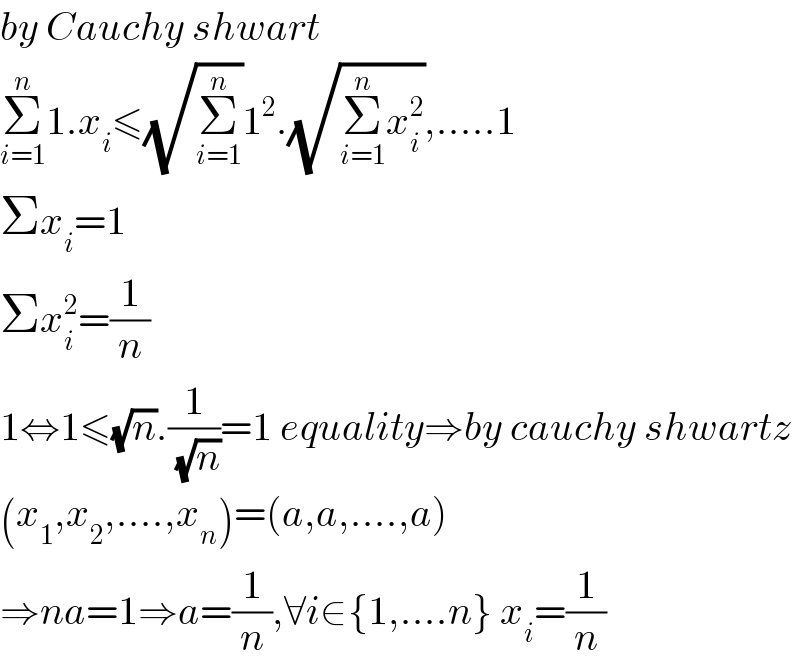
Question and Answers Forum
Previous in Matrices and Determinants Next in Matrices and Determinants
Question Number 88364 by Power last updated on 10/Apr/20

Answered by mind is power last updated on 10/Apr/20

| ||
Question and Answers Forum | ||
Previous in Matrices and Determinants Next in Matrices and Determinants | ||
Question Number 88364 by Power last updated on 10/Apr/20 | ||
 | ||
Answered by mind is power last updated on 10/Apr/20 | ||
 | ||
| ||